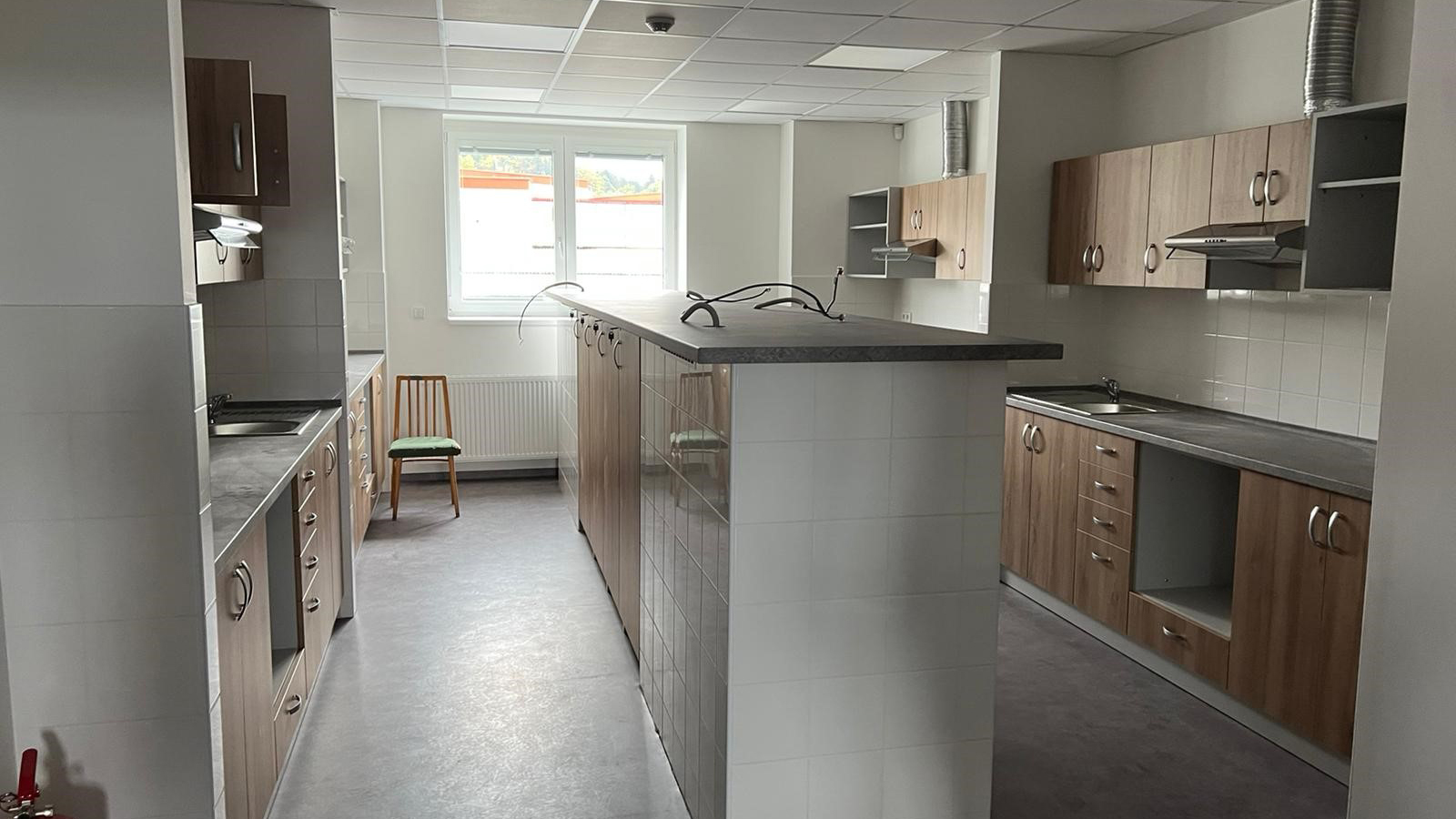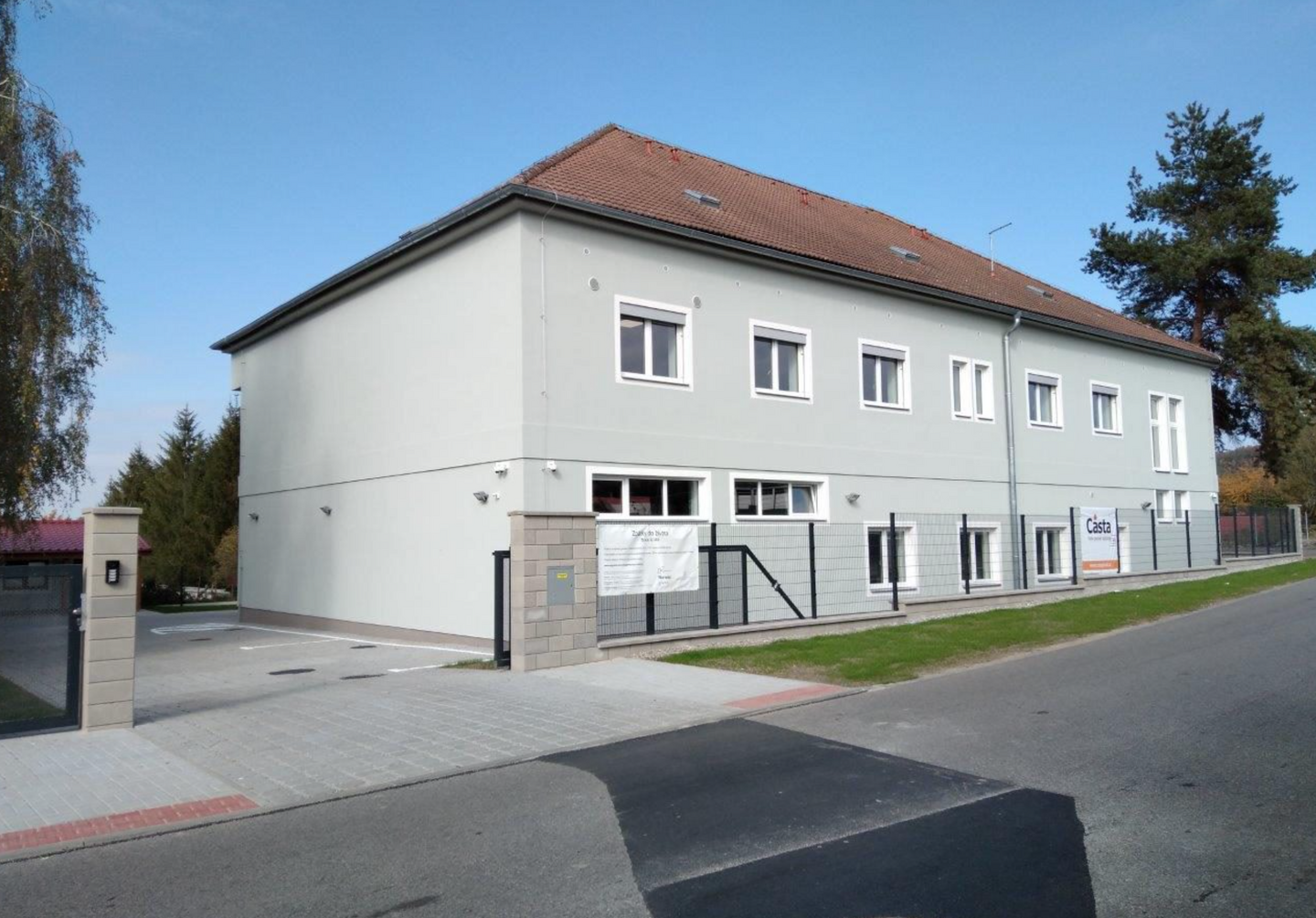Probation houses – a solution for recidivism
Prison overpopulation and a large share of people returning to a life of crime after their release – the so-called recidivism, are long-term problems in the Czech justice system. Probation houses offer a unique opportunity to tackle both issues.
Probation houses are one of the most open types of penal institutions. They are a place for offenders sentenced to an alternative punishment, either through conditional release, also known as parole or during their sentencing in court. They are run by probation officers who serve as social workers and advisors rather than guards.
Gradual transition to freedom helps newly released offenders adjust to the new environment, reducing the likelihood of reoffending. The governing philosophy of a probation house is based on trust and responsibility.

Cutting the ribbon at the new probation house in Písek with Andrea Matoušková, Director General of the Czech Probation and Mediation Service, Victor Conrad Rønneberg, the Ambassador of Norway to the Czech Republic, and Petr Dohnal, Deputy Minister of Justice in the Czech Republic.
And now, the first probation house in the Czech Republic has opened its doors with a mission to modernise the approach to correctional services as part of the “Back To Life” project, funded by the Norway Grants.
The Písek probation house is open for adult men on parole. It is targeted at offenders for whom reintegration into society, such as serving a lengthy prison sentence, would be complicated without intensive professional support. During their six-month stay, the parolees will complete a specially designed residential resocialisation programme under supervision.

The programme includes aid in managing duties and restrictions, skills, and administrative training for parolees’ successful return to society. They receive support in their job search or get advice on handling everyday tasks like banking, housing or administrative matters.
Working together for better rehabilitation
The new probation house was designed with the help of the Buskerud Probation Office in Norway and was based on a Norwegian model that is an integral part of the Norwegian sentence execution system.
“In Norway, the halfway house is part of the custodial sentence. The so-called principle of normality is applied during serving a sentence, ensuring that offenders do not lose their normal work habits. The probation office in Buskerud also implements specialised programmes for offenders, such as a programme for intoxicated drivers. It served as an inspiring example of good practice,” says Matěj Křepinský, Back to Life project manager from the Czech Probation and Mediation Service.
“The importance of establishing the probation house becomes quite clear if you consider the answer to this question: whom would you like to live next to you as your neighbour? A person released from a high-security prison with scarce knowledge of society after serving a ten-year sentence. Or a person that has progressed through a Probation House and has been gradually trained to face the challenges of living a law-abiding life? The answer seems obvious to us,” says Kim Ekhaugen, Head of International Cooperation at the Directorate of Norwegian Correctional Service.
© Royal Norwegian Embassy in Prague
One of the offerings at the probation house is guided resocialisation programmes. They are designed to address the issues that led them to where they are now. Among them is Victim Impact Training which aims to increase empathy towards the victims, a programme for intoxicated drivers, and two programmes for young offenders.
“At the end of the six months, the offender will be more confident in their work and social competencies. He will be able to identify potential risk situations and respond to them – skills that they will develop or enhance at the probation house,” says Kamila Špejrová, Head of the Department of Methodology at the Czech Probation and Mediation Service.
The bigger correctional picture
There are around half a million people imprisoned in the EU. Developing and promoting alternatives to detention and supporting correctional services that bring prisoners back into society are at the heart of the EEA and Norway Grants. Initiatives such as providing inmates with education, relevant skills and support strengthen their ability to live everyday life.
“Given the fact that prisoners will return into society, it is essential to actively promote their rehabilitation process and social reintegration to protect society from crime.”
Council of Europe
With as many as 13 halfway and probation houses currently supported across Europe, the Grants aim to improve European correctional systems. However, this requires actions on multiple levels at the same time. That is why the Grants support a variety of initiatives, such as:
· Reducing overcrowding by providing alternatives to prison, such as monitoring
· Developing policies and national strategies and reviewing sentencing policies
· Improving organisational structures and providing education and training for staff
· Improving preparations for release and reintegration
· Supporting vulnerable groups such as juvenile offenders, women, LGBT and drug addicts
“Directorate of Norwegian Correctional Service is a programme partner in six countries - Latvia, Lithuania, Poland, Romania, Bulgaria and the Czech Republic, and we work closely with them to improve their correctional service. I think this is very exciting, and having worked with these countries for several years already, I know that they are eager to make changes in their systems and also that they are able to do so,” says Kim Ekhaugen, Head of International Cooperation, Directorate of Norwegian Correctional Service.
Rehabilitation through targeted and open correctional services, such as halfway and probation houses, training centres, integration services, vocational training and capacity building, can genuinely make a difference both for the offenders and for society as a whole.
Find out more about the EEA and Norway Grants’ justice programmes here and read more about the new halfway house in the Czech Republic here.


This article is part of the #OurStories campaign. The campaign looks at the vast variety of inspirational stories of projects and connections made possible through the EEA and Norway Grants. We will be sharing these stories on this website through articles and videos published on social media and Youtube. More importantly, #OurStories is a platform for the thousands of project participants who have in one way or the other been involved in projects made possible by the EEA and Norway Grants.
Follow us on social media(@EEANorwayGrants) to stay up-to-date on #OurStories and find more stories here.
